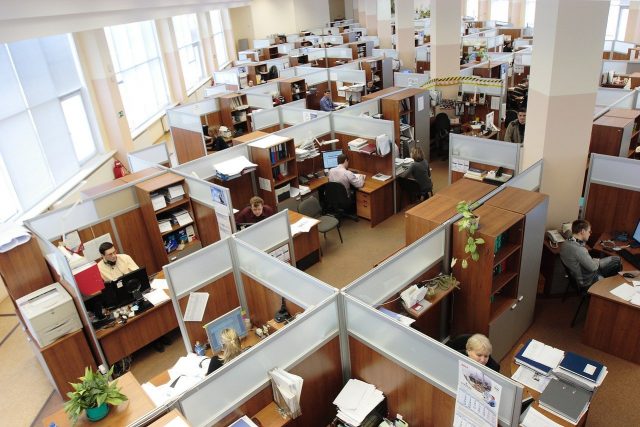
The recent events related to COVID-19 have illustrated the importance of remaining agile and adaptable for businesses across the globe. As employers seek to safely return to the office, expect to see a shift towards private workspaces designed to isolate employees and promote social distancing.
Open plan layouts and coworking spaces have become popular office solutions the recent pandemic necessitates a return to more cubicle-styled workspaces. In an interview with The Guardian, Arjun Kaicker, head of insights and analytics at Zaha Hadid Architects (ZHA) said that he doesn’t think that workspaces “will flow into each other so much any more.” He also outlined the belief that workstations themselves will change as a result of COVID-19, stating that “Office desks have shrunk over the years, from 1.8m to 1.6m to now 1.4m and less, but I think we’ll see a reversal of that, as people won’t want to sit so close together.”
A general increase in the number of people working remotely will also alter the size of office spaces across the world. Companies that would have once occupied a large workspace in the heart of Miami may now be better suited to adopting a smaller private office, depending on how many of their employees make the shift to work from home.
A recent survey undertaken by Bospar, outlines that 52.9% of Americans believe working in an open office environment will lead to an increased potential for infection, with 41% believing that these offices are a “hotbed of infection.”
One principal at Bospar, Curtis Sparrer, went as far as to say that “a majority of Americans are identifying open offices as the number one threat to their health,” and that “several companies should consider whether they need a physical office at all.”
Others are taking a more optimistic view of the current situation. When contacted by South Florida real estate news site The Real Deal, Miami-based property developer Russel Galbut said that “we [his company] believe the office market, while affected by this virus, will not change fundamentally.”
In addition, Tere Blanca, CEO of Blanca Commercial Real Estate, highlighted that South Florida’s market could be at an advantage due to large numbers of suburban office space employees being more spread apart in the workplace, as well as the potential for companies based in other large cities choosing to move to a Florida based satellite office.
Ultimately, the full impact of COVID-19 on office space norms will not be seen for months or years to come. One thing that is certain is that the events of the last handful of months have illustrated the viability of remote work and teleconferencing to businesses across the globe.
As industries get increasingly competitive don’t be surprised to see employers opt to eliminate unnecessary overheads.












